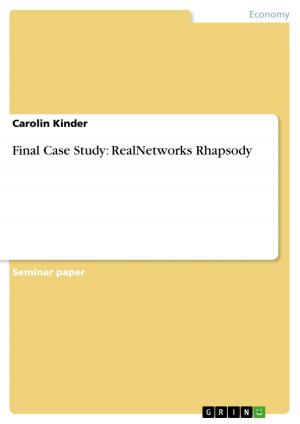Politeness in the Foreign Language-Classroom
Teaching for Intercultural Communicative Competence
Nonfiction, Entertainment, Drama, Anthologies| Author: | Marc Felsbrecher | ISBN: | 9783668434301 |
| Publisher: | GRIN Publishing | Publication: | April 18, 2017 |
| Imprint: | GRIN Publishing | Language: | English |
| Author: | Marc Felsbrecher |
| ISBN: | 9783668434301 |
| Publisher: | GRIN Publishing |
| Publication: | April 18, 2017 |
| Imprint: | GRIN Publishing |
| Language: | English |
Seminar paper from the year 2017 in the subject English Language and Literature Studies - Linguistics, grade: 2,0, , language: English, abstract: It is the aim of this paper to analyze how politeness currently is - and how politeness potentially could be - taught in foreign language classrooms. The focus will be on how foreign language students are - or could be - instructed to perform speech acts that usually require forms of politeness. Teaching politeness will not be reduced to the introduction of cultural stereotypes and basic rules of behavior in language teaching, it will rather be understood as all forms of the pragmatic knowledge required to develop true intercultural communicative competence in the foreign language student. It is argued that currently teaching pragmatics only plays a minor role in foreign language teaching, but that this knowledge is crucial to build up intercultural communicative competence as it is demanded by the CEFR and foreign language curricula. To prove this thesis, current textbooks for teaching English as a foreign language will be examined for teaching activities that include aspects of foreign language pragmatics or politeness. In a subsequent chapter, the didactics and methodology of instructional pragmatics will be discussed on the basis of literature from the field of pedagogy.
Seminar paper from the year 2017 in the subject English Language and Literature Studies - Linguistics, grade: 2,0, , language: English, abstract: It is the aim of this paper to analyze how politeness currently is - and how politeness potentially could be - taught in foreign language classrooms. The focus will be on how foreign language students are - or could be - instructed to perform speech acts that usually require forms of politeness. Teaching politeness will not be reduced to the introduction of cultural stereotypes and basic rules of behavior in language teaching, it will rather be understood as all forms of the pragmatic knowledge required to develop true intercultural communicative competence in the foreign language student. It is argued that currently teaching pragmatics only plays a minor role in foreign language teaching, but that this knowledge is crucial to build up intercultural communicative competence as it is demanded by the CEFR and foreign language curricula. To prove this thesis, current textbooks for teaching English as a foreign language will be examined for teaching activities that include aspects of foreign language pragmatics or politeness. In a subsequent chapter, the didactics and methodology of instructional pragmatics will be discussed on the basis of literature from the field of pedagogy.















